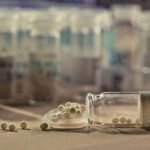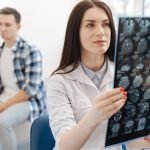American Academy of Pediatrics Gives 5 Guidelines on Antibiotic Use
Node Smith, ND
The antibiotic age of medicine is certainly beginning to shift. With billboards and public service announcements ushering in an awareness that antibiotics should not be used for common cold and flu symptoms, there is a growing shift away from non-specific antibiotic use. With a growing concern of antibiotic resistant bacterial infections, it is possible that holistic practitioners and herbalists will be looked to for options.
“Changing tide” – important that naturopathic physicians are aware of specific changes to historic antibiotic guidelines
It is important that in this time of “changing tide” that naturopathic physicians are aware of the specific changes to historic antibiotic guidelines. This knowledge may help support patients in their navigation through the conventional medical system, especially parents of small children. It may also give a more informed validation of naturopathic and holistic approaches to health, which are beginning to be advocated more and more by conventional medical doctors.
New Updates From AAP
The American Academy of Pediatrics has recently released a list of 5 new practices to help guide pediatricians, especially in hospital settings. The following is taken from an AAP news release earlier this month.
Selecting the right antibiotic dose at the right time for the right duration can go a long way to reduce the effects of antimicrobial resistance in hospitalized pediatric patients.
Pediatric infectious diseases and fetus and newborn experts from the AAP and Pediatric Infectious Diseases Society collaborated on a list of five things physicians and patients should question. List items were selected based on whether they were feasible, evidence-based, not duplicative, free from harm and truly necessary.
Choosing Wisely
The list is part of Choosing Wisely, an initiative supported by the AAP to help pediatricians start conversations with families about the necessity of medical tests, treatments and procedures.
For this list, Antibiotic Stewardship in Hospitalized Children, experts acknowledged that sudden, inexplicable onset of severe illness in an individual hospital patient might warrant short-term, empiric broad-spectrum antibiotic use. Ultimately, the decision is made at the discretion of the medical team.
Pediatricians can pause and choose wisely on the following:
- Don’t initiate empiric antibiotic therapy in the patient with suspected invasive bacterial infection without first confirming that blood, urine or other appropriate cultures have been obtained, excluding exceptional cases.
- Don’t use a broad-spectrum antimicrobial agent for perioperative prophylaxis or continue prophylaxis after the incision is closed for uncomplicated clean and clean-contaminated procedures.
- Don’t treat uncomplicated community-acquired pneumonia in otherwise healthy, immunized, hospitalized patients with antibiotic therapy broader than ampicillin.
- Don’t use vancomycin or carbapenems empirically for neonatal intensive care patients unless an infant is known to have a specific risk for pathogens resistant to narrower-spectrum agents.
- Don’t place peripherally inserted central catheters and/or use prolonged IV antibiotics in otherwise healthy children with infections that can be transitioned to an appropriate oral agent.
 Node Smith, ND, is a naturopathic physician in Portland, OR and associate editor for NDNR. He has been instrumental in maintaining a firm connection to the philosophy and heritage of naturopathic medicine among the next generation of docs. He helped found the first multi-generational experiential retreat, which brings elders, alumni, and students together for a weekend camp-out where naturopathic medicine and medical philosophy are experienced in nature. Four years ago he helped found the non-profit, Association for Naturopathic ReVitalization (ANR), for which he serves as the board chairman. ANR has a mission to inspire health practitioners to embody the naturopathic principles through experiential education. Node also has a firm belief that the next era of naturopathic medicine will see a resurgence of in-patient facilities which use fasting, earthing, hydrotherapy and homeopathy to bring people back from chronic diseases of modern living; he is involved in numerous conversations and projects to bring about this vision.
Node Smith, ND, is a naturopathic physician in Portland, OR and associate editor for NDNR. He has been instrumental in maintaining a firm connection to the philosophy and heritage of naturopathic medicine among the next generation of docs. He helped found the first multi-generational experiential retreat, which brings elders, alumni, and students together for a weekend camp-out where naturopathic medicine and medical philosophy are experienced in nature. Four years ago he helped found the non-profit, Association for Naturopathic ReVitalization (ANR), for which he serves as the board chairman. ANR has a mission to inspire health practitioners to embody the naturopathic principles through experiential education. Node also has a firm belief that the next era of naturopathic medicine will see a resurgence of in-patient facilities which use fasting, earthing, hydrotherapy and homeopathy to bring people back from chronic diseases of modern living; he is involved in numerous conversations and projects to bring about this vision.










